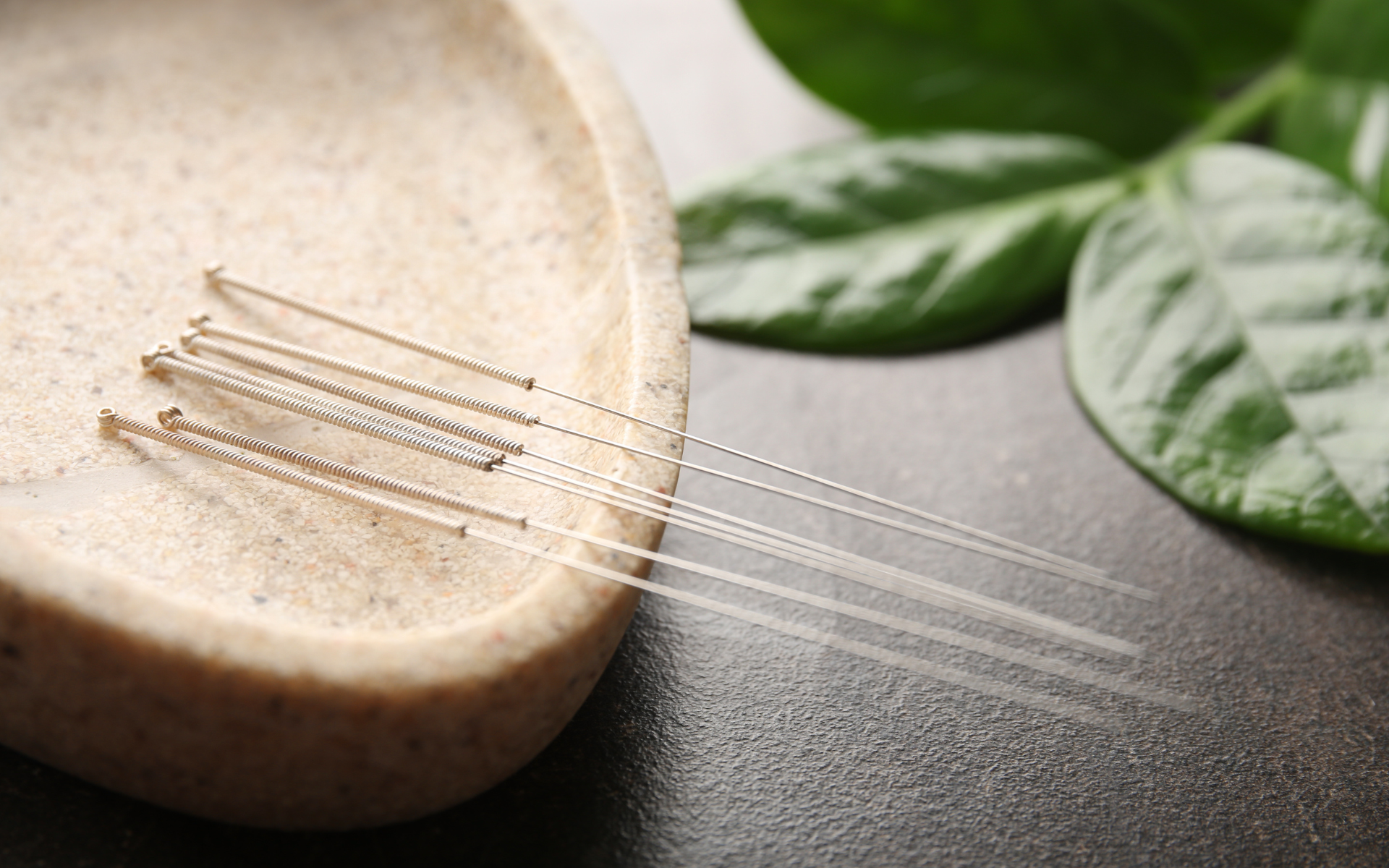Acupuncture
Acupuncture and Traditional Chinese Medicine provide a holistic approach where ancient wisdom is gently woven into the fabric of life, promoting harmony and well-being.
What to Expect with Acupuncture
Acupuncture, rooted in Traditional Chinese Medicine (TCM), is a 3,000-year-old practice that involves the insertion of thin, sterile needles into specific points on the body to regulate Qi, the body’s vital energy. It works to restore balance and is believed to stimulate the nervous system, muscles, and connective tissues, leading to the release of endorphins and other neurochemicals. This process improves circulation, boosts mood and immune function, enhances sleep, reduces pain, balances hormones, and much more. Acupuncture addresses not only specific symptoms but also promotes overall well-being. It can be paired with other therapies like cupping, gua sha, and tui na massage. As a full system of medicine, it also encompasses diet therapy (shi liao), lifestyle support through movement, meditation, and mindfulness, and finding balance in all areas of life.
It’s Benefits Include:
Pain management: Effective for back pain, headaches, joint pain, arthritis, and tendonitis.
Stress reduction: Reduces anxiety, regulates the nervous system and improves sleep quality
Women's health: Aids in managing menstrual issues, fertility, and menopausal symptoms.
Pregnancy: Supporting morning sickness and nausea, anxiety, low back pain, heartburn, nourishing blood and body fluids, assisting with cervical ripening, labour prep and induction.
Improved circulation: Enhances blood flow and reduces inflammation.
Holistic healing: Addresses root causes of illness, promoting overall balance and well-being.
Complementary therapies: Integrates with cupping, moxibustion, gua sha, tui na, and more for enhanced results.
Acupuncture FAQs
-
Acupuncture is a part of TCM (Traditional chinese medicine) - it is the insertion of thin, single use, sterile needles into the specific points on the body to stimulate various physiological and therapeutic effects. TCM includes the use of moxibustion, cupping therapy, gua sha and electro- acupuncture. Acupuncture and its associated modalities (cupping, etc) have been around for more than 3000 years.
-
Acupuncture and TCM is a part of a whole system of medicine. It can effectively treat many acute and chronic conditions, addressing multiple systems of the body. Acupuncture is effective at treating:
Pain; such as arthritis, TMJ, tendonitis, back pain, fibromyalgia
Headaches/ migraines
Hormonal imbalances - menopause symptoms, menstrual issues etc.
Fertility, pregnancy and postpartum
Mental emotional - stress, anxiety, burn out, depression
Insomnia
Digestive complaints
Skin health
Cancer treatment support + care
Addiction support
-
A fundamental concept in Traditional Chinese Medicine (TCM) and acupuncture is Qi (pronounced "chee"), the vital energy that flows throughout the body. This energy moves through pathways known as meridians or channels. Acupuncture is a therapeutic method that aims to regulate and manipulate the flow of Qi. When Qi becomes imbalanced or disrupted within the organs or meridians, it can result in various health issues. In TCM, it is often said that 'where Qi is stagnant, there is pain'.
In Western medicine, acupuncture is understood to work by stimulating the nervous system, promoting relaxation and reducing stress. It triggers the release of neurochemicals like endorphins and serotonin, which help alleviate pain, assist with sleep and improve mood. Acupuncture also enhances blood flow by stimulating nitric oxide release, which dilates blood vessels and aids healing. Additionally, it modulates pain pathways and can regulate the immune system, reducing inflammation and promoting the body’s natural healing processes on a physical and emotional level.
-
Acupuncture typically causes minimal discomfort. The needles used are extremely thin, much finer than those used for injections, so most people feel only a slight pinch or prick when they’re inserted. Once the needles are in place, sensations like warmth, pressure, or a dull ache may be felt, but it’s generally not painful. Many people find the experience relaxing, and any initial discomfort usually fades quickly.
Acupuncture is extremely safe with a properly trained practitioner. Some minor bruising may occur and it will resolve on its own.


